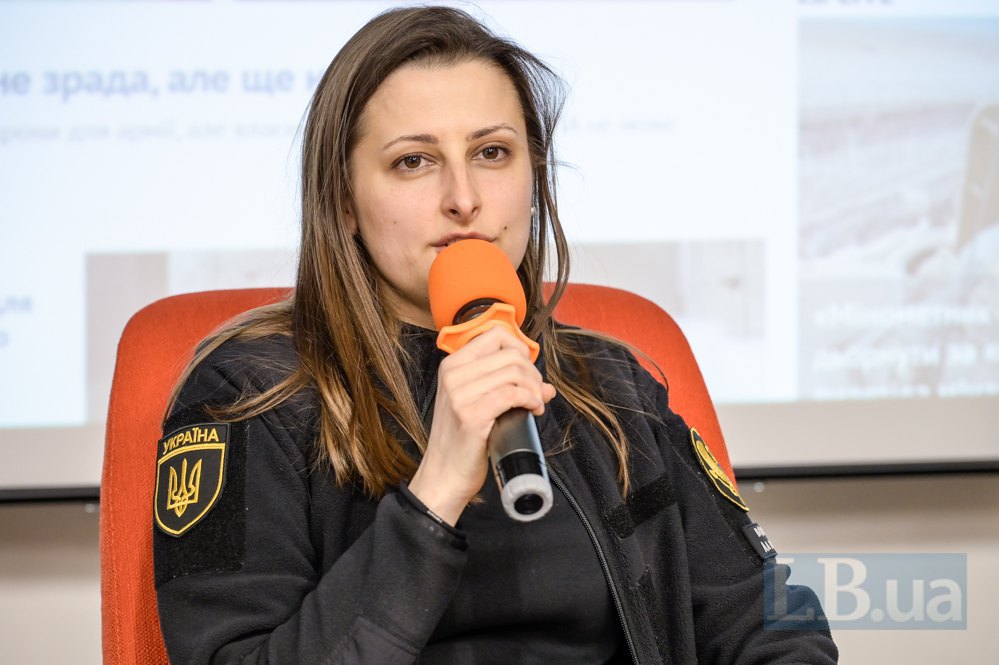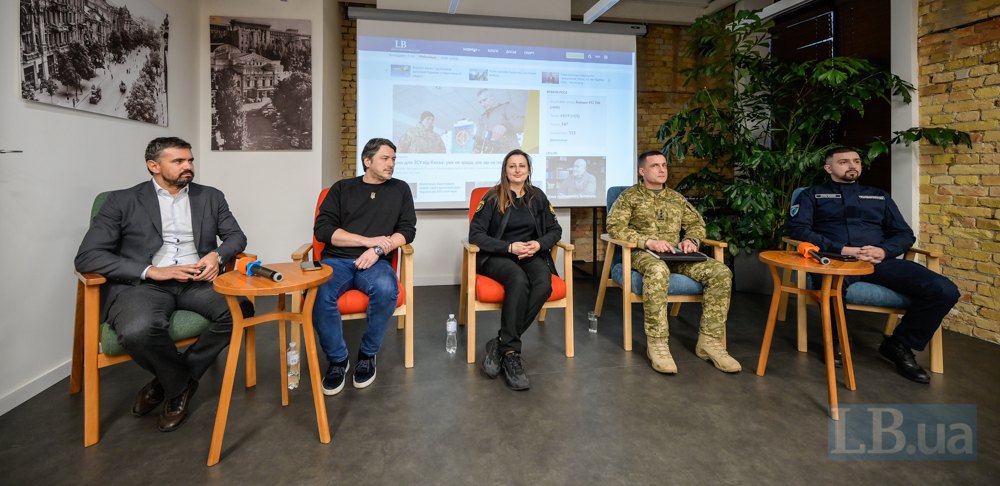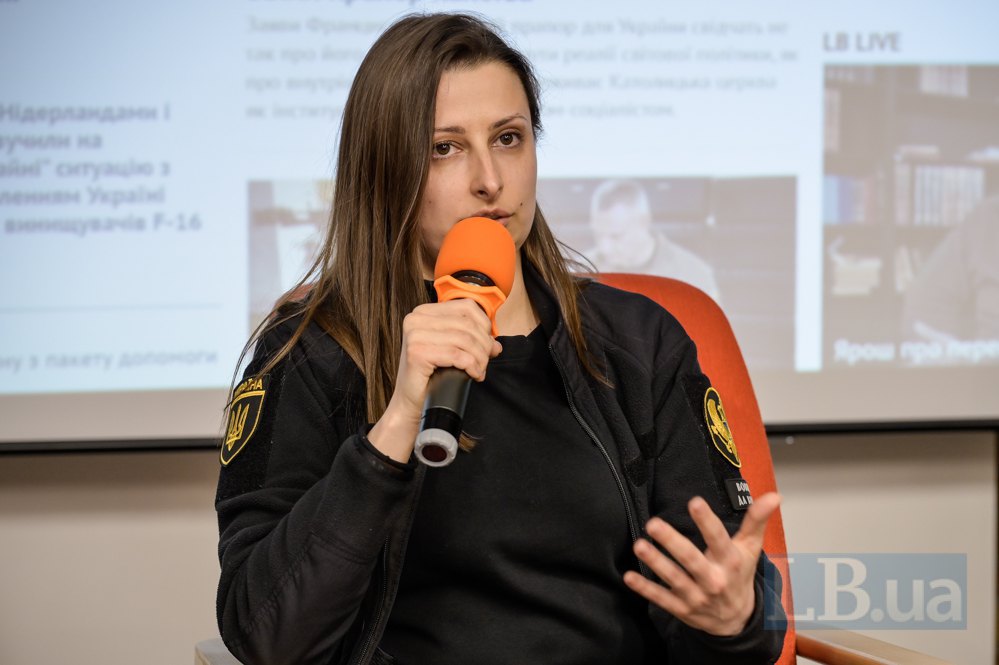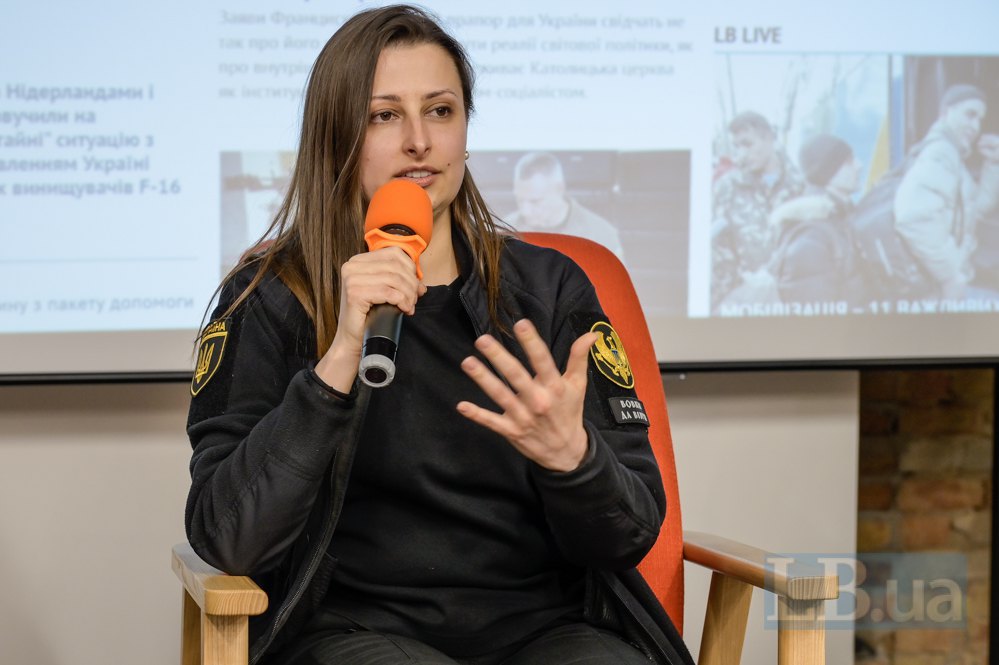
Growing production
"There are more Ukrainian weapons and equipment on the frontline, and they are of a completely different type. I agree that innovations and technological development are the key to victory for us, but we cannot forget about traditional weapons, the production of which we need to increase, and we are increasing it," says Hanna Hvozdyar.
According to her, over the past year, the industry has managed to triple its capacity, and this year it plans to increase its output six times.
"In particular, this concerns the production of ammunition. The work is being done, but unfortunately, we cannot shout about it at every step for security reasons - our enterprises often fall victim to Russian shelling, and very talented specialists are killed. That's why many things have to remain secret so that we can all provide for our army," she said.
At the same time, she noted an increase in the number of private arms and equipment manufacturers.
"I believe this is a very good signal for Ukrainian business. Ukrainian producers, including private ones, have a great chance of becoming part of our army's armament. On the part of the Ministry, we are doing everything we can for the number of these producers to grow.
An important point is that the Ukrainian army today spends money from our taxes to buy weapons and equipment for itself. Accordingly, the more weapons we produce, the more money we will have left over for the development of our own weapons, and the more we will be able to buy next year. The ministry's focus is to build up armaments for our security and economic stability," Hvozdyar said.
She also added that thanks to effective communication with the Armed Forces, manufacturers have the opportunity to improve and upgrade weapons and equipment every day, and soon "it will bear fruit".
"I'm not ashamed of the Ukrainian industry," she stressed.

The problem of contracting
At the same time, the Deputy Minister for Strategic Industries admits that today there is a difference between what is produced and what is supplied to the army. And this is the problem of contracting done by the Ministry of Defence.
"There is a wheeled medical armoured vehicle developed with the participation of doctors we engaged from the front line to make it comfortable. But it has not been purchased.
There are also robotic systems. ...In terms of production, you can see how many means have appeared. The issue is contracting," said Hvozdyar.
Budget lags behind production capacity
Problems with contracting often arise from a lack of money.
"The domestic budget that Ukraine can spend on its armaments is limited. It lags behind our production capacity. We can only spend the money we have, and it is certainly not enough for the needs of the Ukrainian army, which are incredibly high," Hvozdyar said.
Despite the gap between capabilities and needs, the government is working to build up defence, including by trying to attract international partners to contract Ukrainian equipment, she says.
In addition, Hvozdyar notes, the Ministry of Strategic Development is trying to create opportunities for Ukrainian manufacturers to produce in Ukraine what they buy abroad. For example, components for drones.
"They are bought in large quantities abroad, in China, for example. Because it is fast, well-established production, cheap, etc. Our task is to create opportunities to produce these components in Ukraine, so that when a manufacturer receives an order, he does not send money abroad to buy in China or other countries, but can buy from his partner in Ukraine, thus reducing both the logistical distance and having a certain contact for interaction to improve these products," the deputy minister said.
On the importance of alliances with partners
The Ukrainian defence industry is working every day to make Ukraine self-sufficient, but Russia is too powerful an enemy for us to deal with on our own, says Hanna Hvozdyar.
"Unlike our partners who are a little further away, Ukraine will not move away from Russia. It is a much larger country. We can see from their economy that sanctions and military actions do not affect it much. Therefore, alliances are also very important for us. And despite the fact that we are building up our defence to be self-sufficient, I would not underestimate alliances," the representative of the Ministry of Strategic Industries said.
In particular, she said, new technological alliances are being formed today: partners with certain production capacities are using Ukrainian experience to update some of their technologies, which they will then transfer to Ukraine.
"Not only state-to-state alliances are important, but also industry-to-industry alliances. They also strengthen us today," says Hvozdyar.
In addition, she adds, Ukraine is now trying to position itself not just as a poor country that needs help and simply to be supplied with ammunition and weapons, but as a reliable partner with whom one can engage.
"We already have cases of joint production with the world's largest foreign companies. Just last week, we had a director of a global defence company who visited several production facilities, saw and was inspired and realised that he wanted to work with Ukraine, and he already wants to help certain production facilities with something. I believe that the assessment of a person of this rank in the defence sector is a very positive signal for us.
I believe that Ukraine has a lot to boast about. And why shouldn't we boast? We have a great military. I believe that we, in the rear, should at least match the incredible people who are on the front line," said Hanna Hvozdar.

Foreign countries are not happy to share technology
Despite the world's tangible assistance and interest in the development of Defence Tech, there are countries that do not share their technologies with Ukraine.
"As it turned out, a lot of countries are still legally living under the laws of the Cold War and keep technology close to their chest. However, the Ministry of Defence, our ministry, when we communicate with other countries, says that Ukraine has a very dynamic situation on the frontline with regard to technology. What was relevant to the enemy today, we find a solution for it tomorrow, and they find their own, it's a constant process. We explain to our partners that the technologies they keep and do not use in the war will be useless tomorrow," said the representative of the Ministry of Strategic Industries.
As an example, she cited the United States, where the state holds the technology, and what they are willing to share with Ukraine is a complex political issue.
"Our partners are not very keen on spending money on Ukrainian weapons. We are currently negotiating to get them to do so, because Ukraine needs to move its economy forward. It is the same with technology.
Our argument is that the only battlefield where technology works is Ukraine. And closed technologies in other countries that are at peace will cease to be technologies tomorrow, because this is a very dynamic environment. If our partners give us the technology, we will add our unique experience, which our people gain at a very high cost every day, and make their technology much more powerful. This will give us an advantage on the frontline, and our partners will get improved technologies. This is the only way out, in my opinion," the Deputy Minister summed up.
Where technological breakthroughs are possible
According to Hvozdyar, there is room for a technological breakthrough in Ukraine in any area of the defence industry.
"The Ukrainian defence industry is a magical forest that you enter, and there is a lot of magic there. ...Today, I see a lot of cool, charged people with ideas, with cool producers working in three shifts at various enterprises of both state and private ownership, who believe that they are bringing victory closer," she said.
She added: "We are not standing still. Is there room for a breakthrough? We have it everywhere. Whatever area we touch upon, whatever weapon it is, there is a lot of room for improvement. Whether it's Defence Tech, or, for example, we are now working on ammunition for drones, because we have a lot of drones - more than a million are already under contract, and each one needs ammunition."
Hvozdyar notes that the military is involved in many developments. In general, "the strength of the Ukrainian defence industry is in its close proximity to the needs of the army," she said.
In addition, the Ministry of Strategic Industries is creating communication platforms - clusters, platforms, and competence centres at state-owned enterprises - where people can bring their own developments and ideas.
"I believe that there is really unlimited space here. We are now setting up these communication platforms, keeping in mind the safety of our people," says the Deputy Minister of Strategic Industries.
On future strategies
The Ministry of Defence is working on a vision for the army of the future, while the Ministry of Strategic Industry is focused on providing the army with everything it needs to defend itself now - the war is too large-scale, the enemy is too strong, says Hanna Hvozdyar. But if we talk about the strategy for the future, it comes down to replacing people with equipment on the battlefield wherever possible.
"We already have drones, at least for reconnaissance, where people used to go on foot. We have automated turrets that can be built into a small line of defence at the front, and there is no human there.
"We are currently testing medical evacuation platforms because, unfortunately, we lose people under heavy fire, both the wounded and the medics who evacuate them. If we can evacuate a person from heavy fire with robots, it will increase the chances of survival for both," said the representative of the Ministry of Strategic Industries.
Despite the fact that the Ukrainian defence industry is unable to cover all the needs of the army, there is constant work on finding and implementing innovative solutions, she said.
"Our innovations actually come to the challenge. When we had problems with ammunition, FPV drones appeared," recalls Hanna Hvozdar. And such solutions, she says, often appear in the army, on the front line. Special services also come up with ideas. All products are being "vacuumed" across the country Brave1 (a platform for cooperation between defence-tech companies, the state, the military, investors, volunteer foundations and the media. - Ed.) and brings them to codification.
"This is a gradual movement. We must remember that it is very difficult for us to provide for our army even with the support of our partners, and today, thank God, we have the entire democratic world on our side, including with sufficiently strong weapons. However, we understand that our enemy is a tyrant who invests all his money in armaments. No democratic country can sacrifice the welfare of its citizens to go kill someone," Hvozdyar said.









